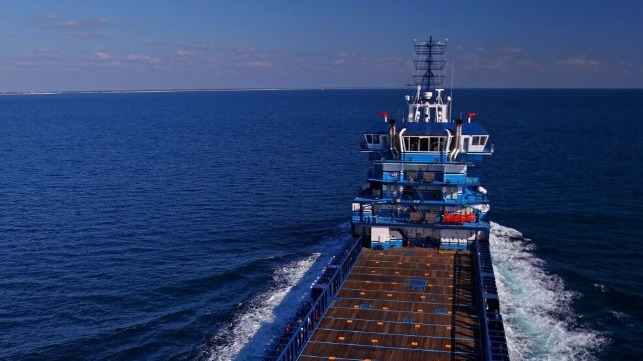USCG Changes Policy to Help Jones Act OSVs Deliver Aid Cargoes

The U.S. Coast Guard has formalized new nationwide procedures for OSVs to join in disaster-relief sealift efforts, fulfilling a long-sought goal of offshore vessel operators and Jones Act proponents.
According to the Offshore Marine Service Association (OMSA), the USCG's prescriptive requirements differ between OSVs and other vessel classes, and a strict reading of the rules can limit the ability of OSVs to operate in support of relief and recovery efforts after a natural disaster. This removes useful assets from the response, OMSA says: OSVs' internal cargo tanks and wide-open back decks mean that they are well-suited to deliver fuel, water, vehicles and other supplies to small piers, even when larger port infrastructure is damaged.
After Hurricane Maria, several offshore vessels from the Gulf attempted to deliver cargo to or within Puerto Rico. Many were turned back due to strict interpretations of Coast Guard regulations, OMSA said.
The new policy guidance may help clarify matters. Under the new policy letter, vessel owners or operators may request an equivalency or exemption to undertake a relief voyage for which the vessel would not normally be certified. The applicaion must include a gap analysis to identify the laws and regulations the vessel will not meet on the intended route. The owner or operator can propose alternative measures to guarantee an equivalent level of safety, even if the vessel will not be technically compliant.

that matters most
Get the latest maritime news delivered to your inbox daily.
“Unlike the unlawful, unhelpful, and unnecessary Jones Act waiver issued by the Biden Administration to BP, the USCG policy letter is a great example of a lawful and truly helpful step that the government can take to help disaster victims. Furthermore, it is an example of a step that honors American mariners and shipyard workers as well as the companies that have invested in U.S. vessels," said OMSA President Aaron Smith.
OMSA warned that the recent waiver rewarded oil traders for asking for permission to berth a foreign vessel after arrival - not before starting the voyage - and could encourage others to do the same.
